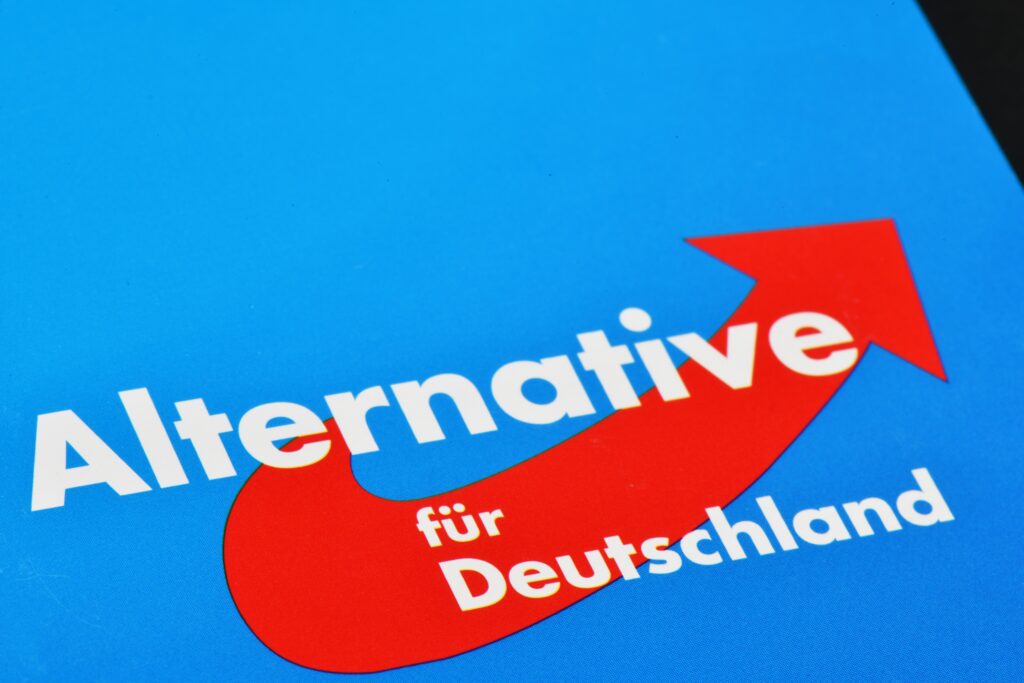U.S. Vice President JD Vance has drawn sharp criticism during his visit to Munich after meeting with Alice Weidel, leader of the far-right Alternative for Germany (AfD) party, while skipping a meeting with German Chancellor Olaf Scholz. The visit, which came just days before Germany’s federal elections, has intensified tensions between the U.S. and Germany.
The AfD, known for its nationalist and anti-immigration stance, remains largely excluded from coalition agreements by mainstream German political parties. Despite its controversial policies, recent polls indicate that the party is gaining traction, placing second with nearly 20% support.
Criticism of European Political Practices
Speaking at the Munich Security Conference, Vance took aim at European democratic norms, particularly the so-called “firewalls” that German political parties use to isolate the AfD. He argued that such measures undermine democracy by preventing alternative viewpoints from gaining representation.
“To many of us on the other side of the Atlantic, it looks more and more like old entrenched interests hiding behind ugly Soviet-era words like misinformation and disinformation,” Vance said. He further claimed that suppressing certain political voices weakens democracy rather than protecting it.
His remarks were met with immediate backlash from German leaders. Chancellor Scholz responded via social media, reaffirming Germany’s stance against far-right extremism. “Out of the experiences of Nazism, the democratic parties in Germany have a joint consensus—that is the firewall against extreme right-wing parties,” he posted.
German Officials Push Back
German Defence Minister Boris Pistorius strongly rejected Vance’s comparison between Germany’s democratic system and authoritarian regimes. He described the remarks as “unacceptable” and misleading.
“Democracy must defend itself against extremists who seek to destroy it,” Pistorius said. He added that while freedom of speech is protected in Germany, not all political movements deserve equal legitimacy.
Bavarian Governor Markus Söder also weighed in, defending Germany’s approach to coalition-building. “We take every opinion seriously, but we decide ourselves with whom we form a coalition,” he stated, reinforcing the position that mainstream parties will not collaborate with the AfD.
Immigration Stance Fuels Further Debate
Vance also criticized Europe’s immigration policies, accusing leaders of failing to control their borders. He claimed that European nations had opened “floodgates to millions of unvetted immigrants,” which he suggested could pose security risks.
Norwegian Prime Minister Jonas Gahr Støre responded, emphasizing the unique nature of the current migration crisis, particularly due to the war in Ukraine. “He speaks as though we are not focused on immigration in Europe,” Gahr Støre said. “This is a central theme in every country. We want control of our borders, but we also respond to crises like the war in Ukraine.”
Vance’s meeting with Alice Weidel followed her recent high-profile visit with Hungarian Prime Minister Viktor Orbán, further elevating her international profile. Her party, which remains controversial in Germany, has gained influence by advocating nationalist policies and opposing European Union directives.
Avoiding Scholz Raises Diplomatic Questions
Although Vance met with German President Frank-Walter Steinmeier and opposition leader Friedrich Merz during his visit, he notably did not engage in further discussions with Chancellor Scholz. The two leaders had met earlier in Paris at an AI summit, but Vance’s decision to forgo a direct meeting in Germany has raised diplomatic concerns.
By skipping Scholz while openly engaging with Weidel, Vance has fueled speculation about the U.S. administration’s stance on Germany’s far-right movement. Some analysts believe that this move signals a shift in Washington’s approach to European politics, though the White House has not issued an official statement on the matter.
Implications for U.S.-Germany Relations
Vance’s remarks and actions have intensified debate over the future of U.S.-Germany relations. The decision to meet with Weidel has alarmed German officials, who view the AfD as a threat to democratic stability. Some worry that the visit could embolden far-right elements within Germany at a critical moment before the federal elections.
As Vance concluded his visit, he stood firm on his stance that democracy should not exclude alternative political perspectives. “Democracy rests on the sacred principle that the voice of the people matters. There’s no room for firewalls,” he stated.
With tensions high and elections approaching, the fallout from Vance’s visit may continue to shape political discourse in both Germany and the U.S. For more updates on this developing story, visit Euro News 24.
